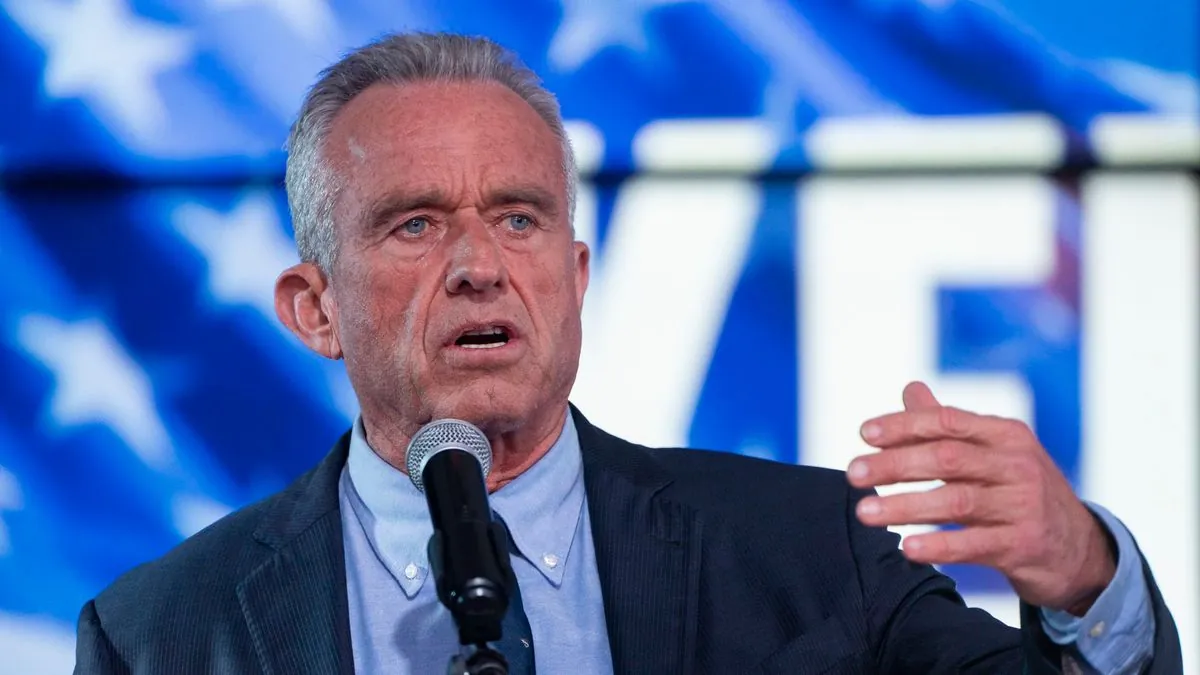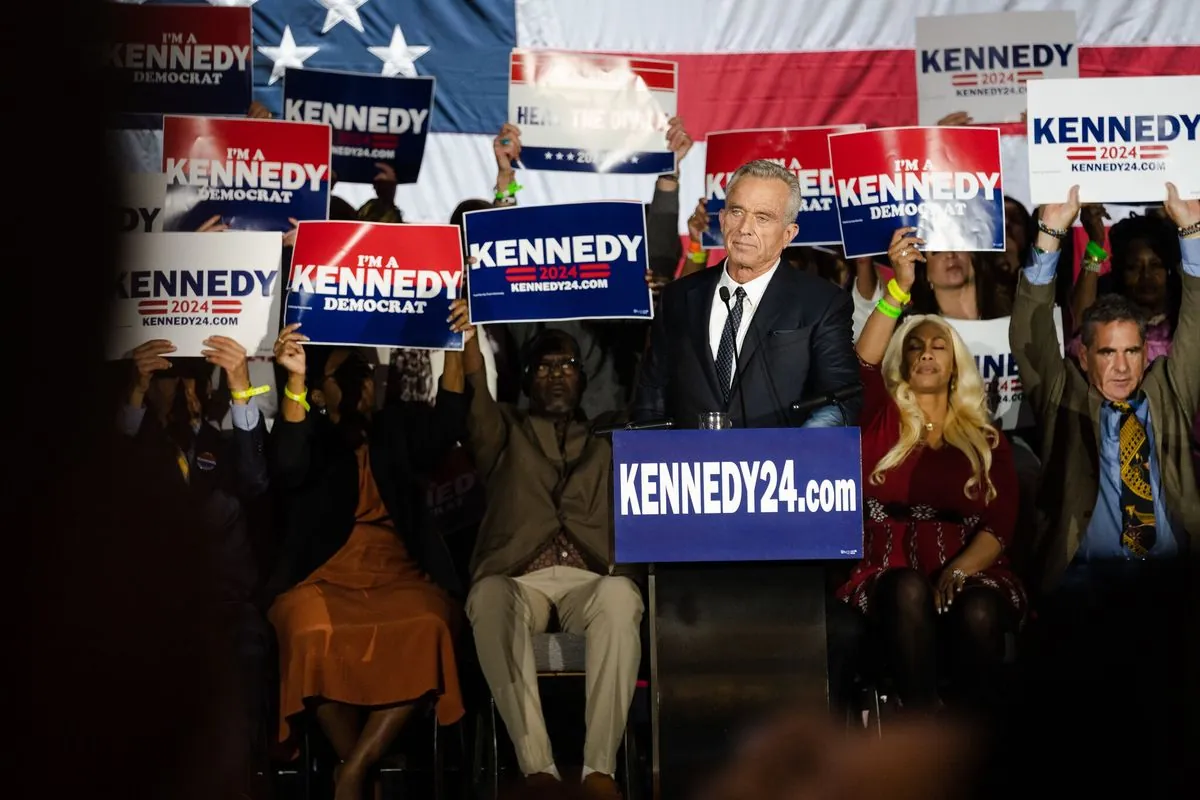Supreme Court Rejects Kennedy's Bid for New York Ballot Reinstatement
The U.S. Supreme Court denied Robert F. Kennedy Jr.'s request to restore his name to the New York ballot after his campaign suspension. Legal challenges arose due to residency issues in his ballot petition.

The U.S. Supreme Court has declined Robert F. Kennedy Jr.'s attempt to regain a spot on the New York state ballot, following his campaign suspension and subsequent endorsement of Donald Trump. This decision marks a significant development in Kennedy's unconventional political journey, which has been characterized by controversy and legal challenges.
Kennedy, a member of the prominent Kennedy political family and son of the late Robert F. Kennedy, initially launched his presidential campaign as a Democrat in April 2023. However, he later transitioned to an independent run, facing numerous obstacles in securing ballot access across various states.
The legal dispute in New York centered around Kennedy's residency claims. A state judge ruled that Kennedy had provided a "sham" address on his ballot petition, stating he lived in New York when he actually resides in California. This violation of state law led to his disqualification from the New York ballot.
Kennedy's campaign challenged this decision in federal court, arguing that the residency disclosure requirement infringed upon voters' rights. However, both a federal judge and the 2nd U.S. Circuit Court of Appeals rejected these claims earlier in September 2024.
In their appeal to the Supreme Court, Kennedy's supporters contended that no one was misled by the address provided and that removing him from the ballot deprived his supporters of their right to vote for their preferred candidate. Despite suspending his campaign, Kennedy's legal team emphasized that he had not terminated it entirely.

Kennedy's political career has been marked by his environmental advocacy and controversial stances on various issues. As the founder of the Waterkeeper Alliance and author of several books on environmental topics, he has been involved in numerous legal cases against large corporations for environmental violations. However, his anti-vaccine activism and criticism of the Democratic Party establishment have drawn significant controversy, even from within his own family.
Throughout his campaign, Kennedy focused on issues of corporate power, government corruption, and election integrity. He has been a vocal proponent of renewable energy and climate change action, while also advocating for Native American rights.
New York Attorney General Letitia James opposed Kennedy's Supreme Court request, noting that tens of thousands of ballots had already been mailed to overseas and military voters. This practical consideration likely played a role in the Court's decision to reject Kennedy's bid.
The Supreme Court's ruling effectively ends Kennedy's efforts to appear on the New York ballot, despite his campaign's assertion that supporters should still have the right to vote for him. This decision underscores the complex interplay between campaign strategies, legal requirements, and the practical aspects of election administration.
As the 2024 presidential election approaches, Kennedy's unique campaign trajectory serves as a reminder of the challenges faced by independent candidates in navigating the U.S. electoral system. While his bid for the presidency may have been suspended, the legal and political ramifications of his campaign continue to unfold, shaping the landscape of American politics.


































